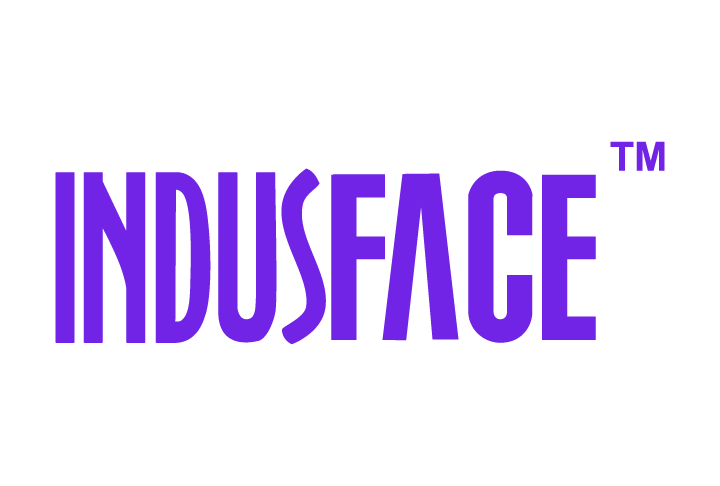AppTrana
Getting Started
Frequently Asked Questions
Product Details
Browser Protection
API Scan Coverage for OWASP Top 10
Malware Scanning for File Uploads
Whitelist Vulnerabilities on the AppTrana WAAP
API Request to Purge CDN Data
Analysis page - Attack Trend Visualisation
Update Origin Server Address
Advanced Behavioral DDoS
BOT Protection
Asset Discovery
Customize Application Behavior with Bot Score
Restricted Admin User
OWASP API Security Top 10 2023 – AppTrana API Protection
Self Service Rules
ASN based IP Whitelisting
Enhance Your API Security with API Classification
SwyftComply for API Scan
Custom Bot Configuration
Configure Custom Error Pages in AppTrana
Configuring Custom Error Page in AppTrana
Enabling SIEM Integration
API Discovery Feature
SwyftComply
Analysis page - Access Trend Visualization
Manage WAAP Email Alerts
Configuring Custom Error and Maintenance Pages in AppTrana WAAP
Enable and Configure Single Sign-On
Origin Health Check Mechanism
WAF Automated Bypass and Unbypass
False Positive Analysis Report on WAAP
DNS Management
Product User Guide
Indusface WAS
Getting Started
Product User Guide
Summary
Dashboard
Malware Monitoring[MM]
Vulnerability Assessment[VA]
Application Audit[AA]
Reports
Settings
Asset Monitoring
New Reporting Structure
API Security Audit
Frequently Asked Questions
Feature Summary
AcuRisQ – Risk Management with Advanced Risk Scoring
Automated API Scanning
WAS Consulting License
API Key Based - Scan Log Export
WAS Defacement Checks
SIEM Integration with Sumo Logic
Indusface WAS Scanned Vulnerabilities
Indusface Newsletter
Indusface Product Newsletter - October 2021
Indusface Product Newsletter- April 2021
Indusface Product Newsletter-January21
Indusface Product Newsletter - June 20
Indusface Product Newsletter - October 19
Indusface Product Newsletter - August 19
Product Newsletter of May 19
Product Newsletter of March 19
Product Newsletter of January 19
WAF Portal Revamp June 18
Product Newsletter of July 18
Product Newsletter of May 18
Product Newsletter of March 18
Product Newsletter of February 18
Product Newsletter of January 18
Indusface Product Newsletter - March 2022
Indusface Product Newsletter - February 2023
Indusface Product Newsletter- October 2022
Zero Day Vulnerability Reports
Vulnerabilities Detected in 2016
CRS vs. Zero Day Vulnerability - December 2016
CRS vs. Zero Day Vulnerability - November 2016
CRS vs. Zero Day Vulnerability - October 2016
CRS vs Zero Day Vulnerability - September 2016
CRS Vs Zero Day Vulnerabilities - August 2016
Vulnerabilities Detected in 2017
Vulnerability Report of April 17
Vulnerability report for Apr 3rd - Apr 9th 17
Vulnerability report for April 17th - Apr 23rd 17
Vulnerability report of April 10th - April 16th
Vulnerability Report of March 17
Vulnerability report for Mar 20th - Mar 26th
Vulnerability report for Mar 13th - Mar 19th
Vulnerability report for 27th Feb - 5th Mar
Vulnerability report for Mar 27th - Apr 2nd
Vulnerability report for Mar 6th - Mar 12th
Vulnerability Report of February 17
Vulnerability Report of January 17
Vulnerability Report of December 17
Vulnerability Report of November 17
Vulnerability Report of August 17
Vulnerability Report of September 17
Vulnerability Report of October 17
Vulnerability Report of July 17
Vulnerability Report of June 17
Vulnerability Report of May 17
Vulnerabilities Detected in 2018
Vulnerability Report of December 18
Vulnerability Report of November 18
Vulnerability Report of October 18
Vulnerability Report of September 18
Vulnerability Report of August 18
Vulnerability Report of July 18
Vulnerability Report of June 18
Vulnerability Reports of May 18
Vulnerability Report of April 18
Vulnerability Report of March 18
Vulnerability Report of February 18
Vulnerability Report of January 18
Vulnerabilities Detected in 2019
Vulnerability Report of December 19
Vulnerability Report of November 19
Vulnerability Report of October 19
Vulnerability Report of September 19
Vulnerability Report of August 19
Vulnerability Report of July 19
Vulnerability Report of June 19
Vulnerability Report of May 19
Vulnerability Report of April 19
Vulnerability Report of March 19
Vulnerability Report of February 19
Vulnerability Report of January 19
vulnerabilities Detected in 2020
Vulnerability Report of December 20
Vulnerability Report of November 20
Vulnerability Report of October 20
Vulnerability Report of Sep 20
Vulnerability Report of July 20
Vulnerability Report of June 20
Vulnerability Report of May 20
Vulnerability Report of April 20
Vulnerability Report of March 20
Vulnerability Report of February 20
Vulnerability Report of January 20
Vulnerabilities Detected in 2021
Vulnerability Report of November 21
Vulnerability Report of October 21
Vulnerability Report of September 21
Vulnerability Report of August 21
Vulnerability Report of July 21
Vulnerability Report of June 21
Vulnerability Report of May 21
Vulnerability Report of April 21
Vulnerability Report of March 21
Vulnerability Report of February 21
Vulnerability Report of January 21
Vulnerability Report of December 21
Vulnerabilities Detected in 2022
Vulnerability Report of January 22
Vulnerability Report of February 22
Vulnerability Report of March 22
Vulnerability Report of April 22
Vulnerability Report of May 22
Vulnerability Report of June 22
Vulnerability Report of July 22
Vulnerability Report of August 22
Vulnerability Report of September 22
Vulnerability Report of October 22
Vulnerability Report of November 22
Zero-Day Vulnerability Report - December 2022
Vulnerabilities Detected in 2023
Vulnerability Report of May 23
Vulnerability Report of March 23
Vulnerability Report of August 23
Vulnerability Report of July 23
Vulnerability Report of April 23
Vulnerability Report of November 23
Vulnerability Report of June 23
Vulnerability Report of December 23
Vulnerability Report of February 23
Vulnerability Report of January 23
Vulnerability Report of September 23
Vulnerability Report of October 23
Vulnerabilities Detected in 2024
Vulnerability Report of October 2024
Vulnerability Report of April 2024
Vulnerability Report of July 2024
Vulnerability Report of May 2024
Vulnerability Report of September 2024
Vulnerability Report of February 2024
Vulnerability Report of December 2024
Vulnerability Report of January 2024
Vulnerability Report of June 2024
Vulnerability Report of March 2024
Vulnerability Report of November 2024
Vulnerability Report of August 2024
Security Bulletin
Vulnerabilities 2024
Hotjar's OAuth+XSS Flaw Exposes Millions at Risk of Account Takeover
Critical Apache OFBiz Zero-day AuthBiz (CVE-2023-49070 and CVE-2023-51467)
CVE-2024-4879 & CVE-2024-5217 Exposed - The Risks of RCE in ServiceNow
ScreenConnect Authentication Bypass (CVE-2024-1709 & CVE-2024-1708)
CVE-2024-4577 – A PHP CGI Argument Injection Vulnerability in Windows Servers
CVE-2024-8517 – Unauthenticated Remote Code Execution in SPIP
CVE-2024-1071 – Critical Vulnerability in Ultimate Member WordPress Plugin
Cryptocurrency Mining Attack Exploiting PHP Vulnerabilities: An Emerging Threat
Oracle WebLogic Server Deserialization
ApacheStructs_VG
Apache Struts 2 Vulnerability CVE-2023-50164 Exposed
Unpacking the Zimbra Cross-Site Scripting Vulnerability(CVE-2023-37580)
Adobe ColdFusion Vulnerabilities Exploited in the Wild
Remote Unauthenticated API Access Vulnerabilities in Ivanti
Multiple Moveit Transfer Vulnerabilities
HTTP/2 Rapid Reset Attack Vulnerability
CVE-2024-9264 - Grafana’s SQL Expressions Vulnerability
CVE-2024-8190 – OS Command Injection in Ivanti CSA
Apache log4j RCE vulnerability
Table of Contents
- All Categories
- Security Bulletin
- Adobe ColdFusion Vulnerabilities Exploited in the Wild
Adobe ColdFusion Vulnerabilities Exploited in the Wild
 Updated
by Rama Sadhu
Updated
by Rama Sadhu
Adobe ColdFusion, a popular web development platform, has been targeted by malicious actors exploiting the recently disclosed vulnerabilities, including severe CVE-2023-29300. The exploit has been observed in the wild, posing a significant risk to organizations and individuals relying on the software.
Here is an in-depth analysis of these vulnerabilities, including their potential impacts and vital protective measures to protect against these attacks.
Recently Disclosed Vulnerabilities on Adobe ColdFusion
Adobe ColdFusion is a versatile and powerful web development platform known for its rapid application development capabilities. It enables developers to create dynamic websites and web applications using its server-side scripting language, ColdFusion Markup Language (CFML).
Adobe recently disclosed three critical vulnerabilities:
- CVE-2023-29298 – Improper access control, potentially leading to security feature bypass
- CVE-2023-29300 – Deserialization of untrusted data poses a severe threat as it allows remote code execution, potentially enabling attackers to take control of the system
- CVE-2023-29301 – Improper restriction of excessive authentication attempts, could lead to the bypassing of security measures
Adobe released security updates on July 11, addressing these critical vulnerabilities in its ColdFusion versions 2023(Update 1), 2021(Update 7), and 2018(Update 17). These updates effectively mitigate the risk of potential threats such as arbitrary code execution and security feature bypass, making it crucial for users to apply these patches promptly.
Observed Exploit Attempts
On June 12, Project Discovery disclosed a n-day exploit targeting CVE-2023-29300 for which Adobe published a patch for the deserialization vulnerability on July 11. However, during their disclosure, Project Discovery accidentally detailed CVE-2023-38203, a new zero-day exploit (subsequently taken down) chain.
On July 13, Multiple exploitation attempts of Adobe ColdFusion were observed that chained CVE-2023-29298 and CVE-2023-38203, resulting in the execution of PowerShell commands to create a web shell for access to the targeted endpoint. In most cases, the webshell is detected residing in the \wwwroot\CFIDE directory.
.\ColdFusion11\cfusion\wwwroot\CFIDE\ckeditr.cfm
To address the vulnerability (CVE-2023-29300) related to WDDX functionality, Adobe faced a challenge, as removing it entirely would disrupt dependent processes. As a solution, they opted not to prohibit WDDX data deserialization entirely, but implemented a denylist of specific Java class paths that are not allowed to be deserialized. This approach ensures security while preserving functionality for Adobe ColdFusion versions 2023, 2021, 2018, and earlier users.
However, the Project Discovery experts discovered a functional gadget using the class (com.sun.rowset.JdbcRowSetImpl), which was not part of Adobe’s denylist. This gadget enabled remote code execution through deserialization, leading to the revelation of a new 0-day vulnerability (CVE-2023-38203) that acted as a bypass for CVE-2023-29300.
On July 14, Adobe issued patch fixes for CVE-2023-38203 (a bypass for CVE-2023-29300), a deserialization issue that could lead to arbitrary code execution.
However, in the latest blog (earlier taken down) shared by Project Discovery, they mentioned that the previous exploit seemed to be working even after applying the patch for CVE-2023-38203.
The researchers found a mistake in Adobe’s filter-matching process. When input Lcom.sun.rowset.JdbcRowSetImpl; was provided; it successfully matched and blocked the payload. The filter expected only the “L” and “;” characters and replaced them with an empty string. However, if the input was Xcom.sun.rowset.JdbcRowSetImplX did not find any match leading to another bypass.
On July 19, Adobe released a new update that resolves the patch bypass issue and has assigned the vulnerability identified as CVE-2023-38204.
Affected Versions
The following versions of ColdFusion are vulnerable:
- Adobe ColdFusion 2023 Update 1 and earlier
- Adobe ColdFusion 2021 Update 7 and earlier
- Adobe ColdFusion 2018 Update 17 and earlier
Mitigation
Customers must upgrade to the latest available versions of Adobe ColdFusion vulnerabilities to patch these vulnerabilities:
- Adobe ColdFusion 2023 Update 3
- Adobe ColdFusion 2021 Update 9
- Adobe ColdFusion 2018 Update 19
For more information, please refer to the Adobe Security Advisories on APSB23-40, APSB23-41, and APSB23-47.
CVE Details:
Protecting Against Vulnerabilities: AppTrana WAF Coverage
Customers using AppTrana WAF have enhanced protection for these vulnerabilities. The following WAF rules offer protection against these vulnerabilities:
- 99855 – Adobe ColdFusion Vulnerability Policy (Adobe ColdFusion Deserialization)
- 99856 – Adobe ColdFusion Vulnerability Policy (Adobe Cold Fusion Access Control Bypass)
The screenshot below showcases how AppTrana WAF prevents ColdFusion vulnerability exploitation attempts, effectively blocking malicious requests.
CVE-2023-29298
CVE-2023-38203
The following screenshots depict the example logs detected by our security rules:
99855 – CVE-2023-38203 Adobe ColdFusion Deserialization
99856 – CVE-2023-29298 Adobe Cold Fusion Access Control Bypass
Given the active exploitation of these critical vulnerabilities, securing your ColdFusion environment becomes paramount. Employing essential security updates, strong patch management practices, and leveraging the capabilities of AppTrana WAF vulnerability management, you can effectively shield your systems and defend against evolving threats.
References
- https://blog.projectdiscovery.io/adobe-coldfusion-rce/
- https://www.rapid7.com/blog/post/2023/07/17/etr-active-exploitation-of-multiple-adobe-coldfusion-vulnerabilities/
